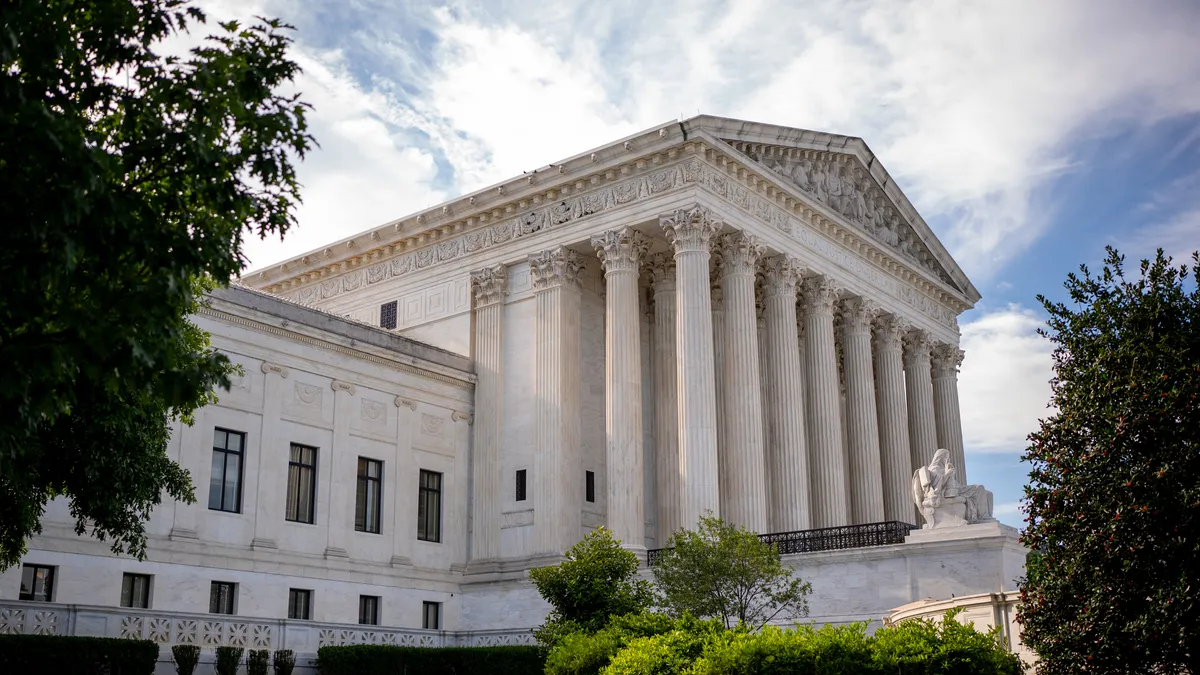Given the importance of predictability in managing a business, companies will likely rue the day the U.S. Supreme Court gutted agency rulemaking authority in Loper Bright and removed the statute of limitations in Corner Post, Todd Baker of Columbia Law School says in the school’s Blue Sky blog.
On their face, the decisions to substitute judicial opinions for agency expertise and extend the window in which companies can sue over rules they don’t like are pro-business. But the end result will be prolonged uncertainty over what the rules are — what Baker calls a business killer in a fast-changing world.
“In many respects, knowing what the rules are is more important for successful business planning than the content of any particular rule,” says Baker, a senior fellow at the Richard Paul Richman Center for Business, Law and Public Policy at Columbia Business School and Columbia Law School. Baker is also a former chief corporate strategy and development officer at three large banks.
“Businesses need to think ahead and make decisions based on reliable assessments of the likely future legal and regulatory environment in which they will compete,” he says. “Strategic and operating plans need to be put into place with financial support and management incentives designed to support desired outcomes. Businesses rely on, and benefit from, predictability.”
As a result of the court’s decision in Loper Bright, which unraveled the Chevron deference to administrative agency interpretations of law, no significant regulatory rule will become final without years of federal court challenges and judicial rulings at multiple levels, probably including a trip to the Supreme Court.
And because of the decision in Corner Post, which Baker calls the more significant of the two decisions, individuals as well as businesses can challenge any final rule, no matter how many years or decades it has been in effect, for six years after they suffer an alleged injury from it. That means a rule could effectively never be finalized.
“In this new world of administrative law,” he says, “it could take five years or longer for regulatory actions to wend their way through the overburdened court system before they become technically final and binding. If interested parties can find or create a new plaintiff in the years after that, the ‘final’ rule can still be challenged under Corner Post on different grounds. It doesn’t matter what the subject matter is — environmental law, securities law, internet rules, labor law, consumer protection, banking law — it’s conceivable that some administrative rules will never have the force of settled law.”
Adding to the uncertainty is the increasing polarization of the courts.
“For reasons that are hard to fathom, lobbyists and others opposing the so-called ‘administrative state’ and regulatory overreach don’t appear concerned about what the new rulemaking model will mean for them when the political worm turns and agencies start issuing regulations that businesses actually like,” he says. “They seem to forget that competitors and public interest groups will have the same power to delay through litigation and to prevent any ‘good for me’ regulation from becoming reliably final.”
It’s helpful to remember that the decision that led to Chevron deference some 40 years ago was a lawsuit filed by environmentalists over an air-quality standard set by a business-friendly EPA. A lower court had rejected the EPA’s standard and substituted something harsher. Chevron appealed and won when the Supreme Court said the lower court erred by substituting its judgment for the EPA’s because the agency’s statutory interpretation was reasonable.
“At some point companies will notice that throwing sand into the gears of regulatory rulemaking will end up hurting as much as helping,” he says. “Here’s a prediction: Within a decade, corporate America will be begging for the return of Chevron deference or something like it. It won’t take long for CEOs to figure out that five or more years of uncertainty about the validity of anything the SEC, FTC, FCC, CFPB, OCC, EPA, NLRB, HHS or any other agency does makes corporate strategic and investment decisions incredibly challenging.”











